The Computer Program

“I am learning lots of new things I didn’t have access to before. Now I have access to a whole new world!”
Centers
Students
%
95% of graduates find a job or continue their education in high school.
%
98% of graduates say the program was useful in preparing them for what they do now.
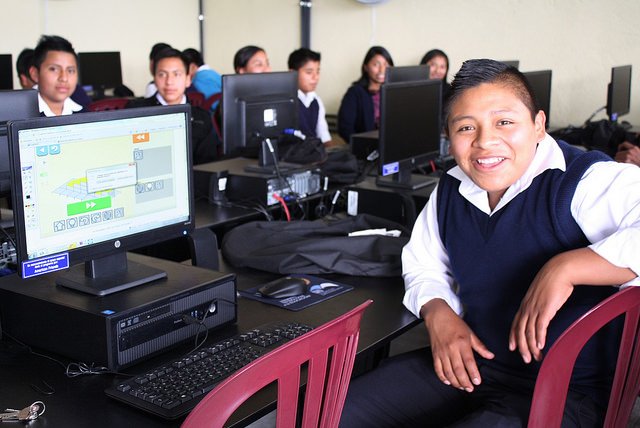
The Demand for Technological Literacy
While almost 60% of entry-level jobs in Guatemala require computer skills, children in rural communities lack access to computer technology. In some communities that the Guatemala Literacy Project (GLP) serves, 100% of students had no experience with computers before the arrival of the program.
When rural, indigenous youth enter the job market without the same training as their urban peers, they face unemployment and economic hardship. As the digital divide grows, so do income disparities, inequality, and poverty. GLP Computer Centers in rural middle schools create opportunities for Maya youth to gain the skills they need to continue their education, secure higher-wage jobs, and permanently raise their standard of living.
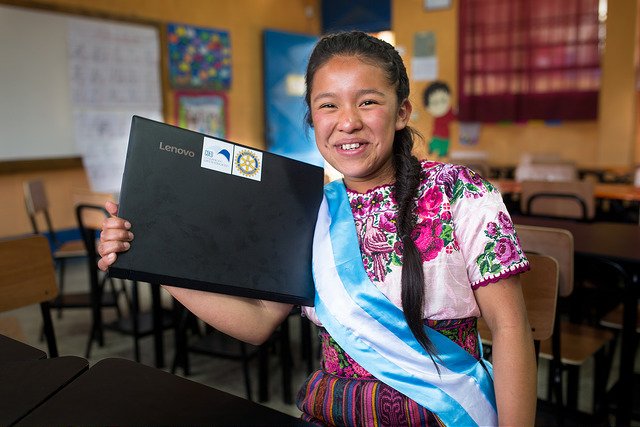
How the Program Works
The GLP establishes Computer Centers in middle schools throughout the Western Highlands, providing young people with access to state-of-the-art technology.
The community partners with the GLP to renovate or prepare a classroom to be a fully functioning Computer Center, with proper security, wiring, ventilation, and lighting.
All equipment is purchased in-country (to secure the lowest possible price and contribute to the local economy) and installed once the space is ready. A typical Computer Center houses 12-30 current-model PCs or 27-42 current-model laptops.
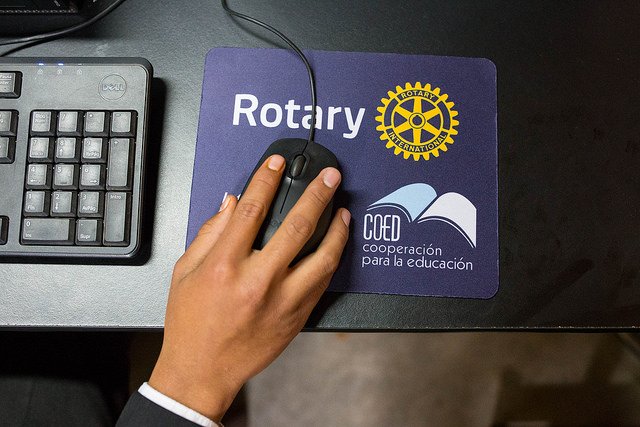
Curriculum
Students receive at least 60 minutes of hands-on computer instruction per week. They learn typing and web navigation as well as the Microsoft Office Suite; develop basic programming skills with Scratch programming; and explore the outside world through Encarta.
All Computer Center students follow a standard, proven curriculum, based on the Internet and Computing Core Certification Global Standard 4 (IC3 GS4)—an internationally-respected computer certification—and aligned with Guatemala’s national curriculum. The course of study consists of 100 lessons spread over a student’s three-year middle school education. At the end of each unit, students complete standardized evaluations that assess their progress.
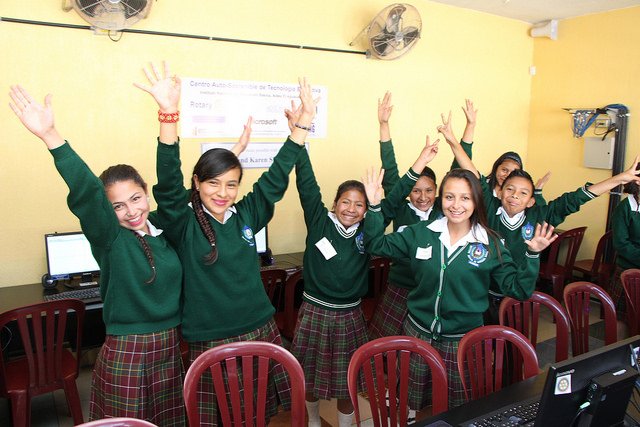
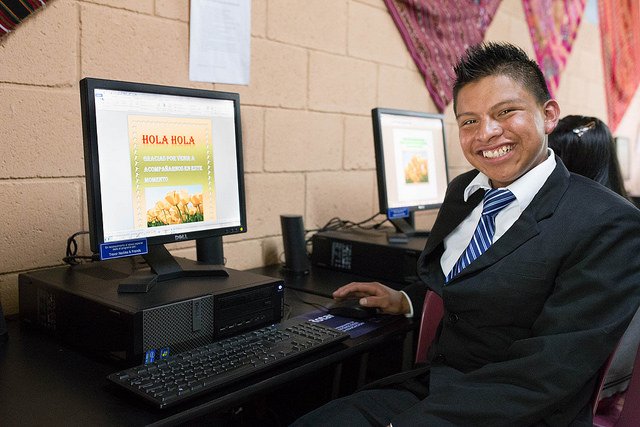
Sustainability
Revolving Fund
Students’ families pay a small fee (about $3 per month on average) for their children to use the computers. The fees go into a revolving fund, which is used to cover operating expenses (like maintenance and software updates) and purchase new computer equipment as the original equipment wears out or becomes obsolete.
Community Involvement
Because families make a commitment to paying into the revolving fund, they have a vested interest in the project’s success. Since the program began in 2001, 33 schools have upgraded their technology at least once using their revolving fund.
Once up and running, the projects are managed by school administration and teachers, with the GLP acting in a supporting role. The GLP also trains local teachers to maintain the technology and instruct computer classes. Teachers demonstrate their computer skills by taking the Internet and Computing Core Certification (IC3) exam. In this way, the knowledge and expertise involved in running the centers resides in the local communities.
